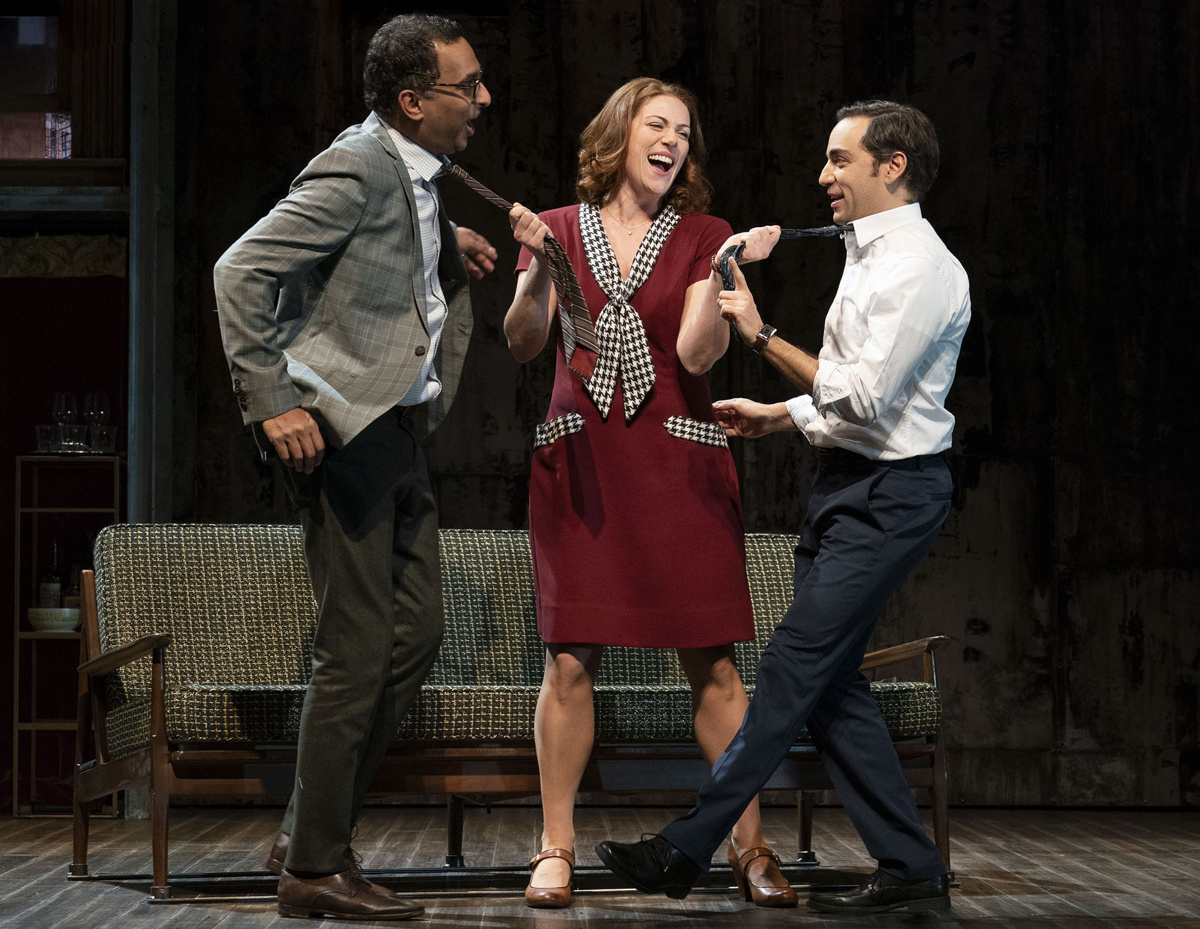Contextual History of “Merrily We Roll Along”

The phrase “merrily we roll along” has a long history, dating back to the 16th century. It was first used in a song by William Byrd, and has since been used in a variety of contexts, including as a drinking song, a marching song, and a children’s rhyme.
In the 1970s, the phrase was used as the title of a musical by Stephen Sondheim. The musical tells the story of a group of friends who meet in college and follow each other’s lives for the next 20 years. The phrase “merrily we roll along” is used to describe the friends’ journey, which is full of both ups and downs.
Significance of the Phrase
The phrase “merrily we roll along” has a number of different meanings in the musical. On one level, it is a simple statement of fact: the friends are moving through life, and time is passing by. However, the phrase also has a more complex meaning. It suggests that the friends are not simply moving through life, but that they are doing so with a sense of joy and optimism.
The phrase “merrily we roll along” is a reminder that life is a journey, and that it is important to enjoy the ride. It is also a reminder that we are all connected to each other, and that our lives are intertwined.
Adaptations and Interpretations of “Merrily We Roll Along”

Since its debut in 1981, “Merrily We Roll Along” has undergone numerous adaptations and interpretations, each offering a unique perspective on the musical’s themes and characters.
Stage Adaptations
The original Broadway production of “Merrily We Roll Along” was directed by Harold Prince and starred Lonny Price as Franklin Shepard. The show received mixed reviews and closed after only 16 performances. However, the musical has since been revived several times, including a critically acclaimed production at the New York City Center in 2012. This production featured a cast of young actors, including Jonathan Groff, Celia Keenan-Bolger, and Lin-Manuel Miranda, and was directed by Michael Greif.
Other notable stage adaptations of “Merrily We Roll Along” include a 1994 production at the Donmar Warehouse in London, directed by Sam Mendes, and a 2013 production at the Menier Chocolate Factory in London, directed by Maria Friedman.
Film Adaptations
In 1994, “Merrily We Roll Along” was adapted into a film directed by Gus Van Sant. The film starred Jonathan Larson as Franklin Shepard, and featured a cast of young actors, including Ethan Hawke, Ben Stiller, and Uma Thurman. The film received mixed reviews, but has since become a cult classic.
In 2017, a new film adaptation of “Merrily We Roll Along” was announced, to be directed by Richard Linklater. The film is set to star Ben Platt as Franklin Shepard, and is scheduled to be released in 2023.
Interpretations
The various adaptations of “Merrily We Roll Along” have resulted in a wide range of interpretations of the musical’s themes and characters. Some productions have focused on the show’s themes of nostalgia and regret, while others have emphasized its themes of friendship and ambition.
The original Broadway production of “Merrily We Roll Along” was praised for its innovative staging and its performances, but some critics found the show’s plot to be confusing and its characters to be unlikeable. The 2012 New York City Center production was praised for its youthful energy and its fresh take on the material. The 1994 film adaptation was criticized for its lack of focus and its uneven performances, but it has since become a cult classic.
Cultural Impact and Legacy of “Merrily We Roll Along”

The groundbreaking musical “Merrily We Roll Along” left an indelible mark on the musical theater landscape, revolutionizing storytelling techniques and inspiring countless subsequent works.
Its innovative structure, which unfolds the narrative in reverse chronological order, challenged conventional storytelling norms and captivated audiences. The musical’s complex characters and exploration of themes such as friendship, ambition, and the passage of time resonated deeply with audiences, sparking critical acclaim and numerous awards.
Influence on Subsequent Works
- Sondheim’s Legacy: “Merrily We Roll Along” cemented Stephen Sondheim’s reputation as a master of musical theater, inspiring a new generation of composers and lyricists to push the boundaries of the genre.
- Non-Linear Storytelling: The musical’s unique structure influenced numerous subsequent works, including “Company” and “Assassins,” which also employed non-linear storytelling techniques.
- Exploration of Complex Themes: “Merrily We Roll Along” set a precedent for musicals that explored complex and challenging themes, such as the nature of relationships, the impact of time, and the pursuit of success.
Enduring Relevance, Merrily we roll along
Despite its initial critical reception, “Merrily We Roll Along” has gained increasing recognition and appreciation over the years.
- Contemporary Productions: The musical has been revived several times, including a critically acclaimed production at the Menier Chocolate Factory in London in 2012.
- Educational Value: “Merrily We Roll Along” is often studied in theater programs and workshops, serving as an example of innovative storytelling and musical craftsmanship.
- Resonance with Modern Audiences: The musical’s themes continue to resonate with contemporary audiences, who grapple with similar issues of ambition, friendship, and the passage of time.